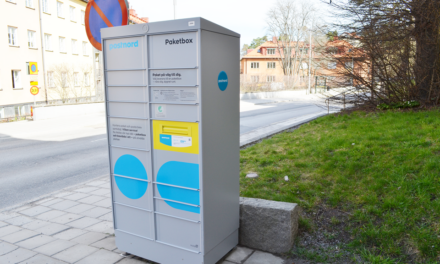
DHL introduces disaster prevention at airports in Bangladesh
Deutsche Post DHL will conduct its “Get Airports Ready for Disaster” (GARD) training at the Dhaka and Chittagong airports in Bangladesh in June, preparing both airports and personnel for the post-disaster logistics situation. The aim of the training is to improve local logistics capacities so that bottlenecks at disaster-site airports can be avoided when huge volumes of incoming relief goods arrive ad hoc.
After conducting trainings in Indonesia and Nepal, the company now adds a third country to its GARD beneficiaries – Bangladesh. During the four-day programme, trainees – airport staff as well as local and government officials – learn to assess local requirements and create detailed contingency plans.
The GARD program was developed together with the United Nations Development Programme (UNDP) to train airport personnel, local security officials and representatives of national disaster agencies in airport logistics management.
Launched in 2009, GARD grew out of first-hand experience that showed just how important it is for disaster-prone regions and airports to be disaster-ready, i.e. be able to respond quickly and effectively to the challenges of disaster relief logistics.
“We’ve gathered enough experience in disaster relief to know that efficient airport logistics are critical when it comes to getting aid to the people who need it most,” said Frank Appel, CEO Deutsche Post DHL. “The GARD initiative allows us to pass on our logistics expertise to local communities in disaster-free times. This way GARD is a smart addition to our regular disaster management activities following natural disasters.”
The GARD instructors are specially trained logistics and training experts from Deutsche Post DHL, some of which are already involved as volunteers in the company’s disaster management programme.
They will conduct the GARD training for some 20 participants in the capital city of Dhaka, and in the port city of Chittagong, which is located in southern Bangladesh. Trainees include not only airport personnel but security officers and military officials. Representatives from various humanitarian organisations, such as the UN World Food Programme and the International Committee of the Red Cross (ICRC) are also present as important partners on the ground.
“For many across the globe, Bangladesh is synonymous with disasters. Yet the country has a strong tradition of resilience in the face of natural hazards, and is now recognised as a leader in disaster management” said Robert Juhkam, country director, UNDP Bangladesh. “UNDP has been working hand-in-hand with Government of Bangladesh since the early 1990s on building disaster management capacity and a key player in coordinating emergency response and preparedness efforts. The importance of airports during the immediate aftermath of a disaster event cannot be understated.”
The GARD training programme begins with an assessment of the existing situation, including available personnel, equipment and the airfield situation. Warehouse space, for example, is one the programme’s focus areas.
Trainees are instructed in assessing storage options for relief goods and whether the necessary equipment is available for cargo handling, such as forklifts, pallets, gloves and boxes. In the workshops, the local trainees evaluate the results and develop contingency plans accordingly. GARD participants learn how to optimise logistics processes and capacities for when international relief goods begin to pour into the airport.
Once trained, the participants in Bangladesh shall evaluate their contingency plans on a regular basis and prepare the event of a crisis with local NGOs, the government and airport officials. GARD will be conducted as part of the “Comprehensive Disaster Management Programme 2010-2014 (CDMP II)” a multi-donor UNDP-support project of the Bangladesh Ministry of Food and Disaster Management, to ensure longer-term implementation of the training results.
Bangladesh is prone to regular flooding as well as to cyclones. With most of the country situated in the Ganges-Brahmaputra-Meghna River delta and along the Gulf of Bengal, monsoon rains and melt waters from the Himalaya place Bangladesh at constant risk of flooding. Many of the country’s large cities are also just a few meters above sea level and are at high risk of earthquakes.
The GARD concept is the natural next step for Deutsche Post DHL in its commitment to humanitarian relief, which began with its Disaster Response Team (DRT) program. As part of the Group’s Corporate Responsibility program GoHelp, the DRTs have been deployed to over 20 airports since 2005. The DRTs, which work free of charge and in close cooperation with the UN, help keep the flow of incoming relief goods moving at disaster-site airports.













